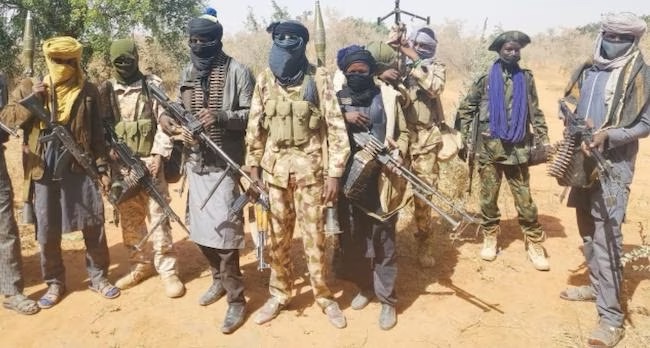Nigeria’s Chief of Army Staff, Lieutenant General Taoreed Abiodun Lagbaja, has reportedly passed away at the age of 56. According to an official statement from President Bola Ahmed Tinubu’s Special Adviser on Information and Strategy, Bayo Onanuga, Lagbaja died on Tuesday night in Lagos following a period of illness. President Tinubu expressed deep sorrow, praising Lagbaja as a dedicated national servant with over three decades in military service.
Lt. General Lagbaja, appointed Chief of Army Staff on June 19, 2023, was a distinguished leader and a graduate of the U.S. Army War College, where he earned a Master’s in Strategic Studies.

Known for his strategic expertise, Lagbaja led numerous security operations across Nigeria, including Operation ZAKI in Benue, Lafiya Dole in Borno, Udoka in the Southeast, and Operation Forest Sanity across Kaduna and Niger States.
Throughout his career, he held multiple high-responsibility roles, starting as a platoon commander in the 93 Battalion and 72 Special Forces Battalion. His service record reflects his commitment to maintaining Nigeria’s security. He is survived by his wife, Mariya, and their two children. President Tinubu extended his condolences to the family and the Nigerian Armed Forces, acknowledging Lagbaja’s legacy of integrity and service.
Lt. General Lagbaja’s passing marks a significant loss for the Nigerian military and the country at large. His leadership was instrumental during critical periods of internal conflict, with a focus on counter-insurgency efforts in areas affected by terrorism and banditry. His contributions to military strategy were widely respected, especially in operations like Lafiya Dole, which aimed to counter Boko Haram in the northeastern region, and Operation Forest Sanity, targeting criminal activity in forests spanning Kaduna and Niger States. These missions underscored his dedication to maintaining national security and protecting communities in volatile regions.
As Nigeria’s military mourns the loss of its Chief, Lagbaja’s impact remains evident in the structural changes he promoted within the Army. He was a strong advocate for modernizing military training, enhancing operational strategies, and bolstering the morale of Nigeria’s troops. His legacy is one of strategic foresight, discipline, and an unwavering commitment to the safety of Nigeria’s citizens. The Nigerian Armed Forces, alongside his family, honor his memory as they continue to uphold the values and standards he championed throughout his distinguished career.





